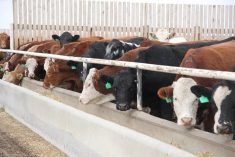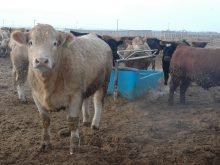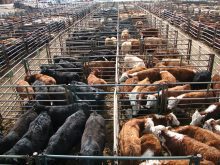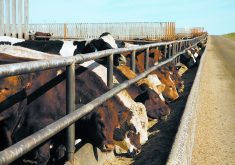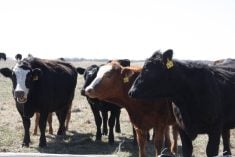This cattle market information is selected from the weekly report from Canfax, a division of the Canadian Cattle Association. More market information, analysis and statistics are available by becoming a Canfax subscriber by calling 403-275-5110 or at www.canfax.ca.
Fed prices rally
Alberta fed prices traded in the mid $240s per hundredweight last week. It was the first rally in seven weeks after trading sideways due to seasonal pressure. Fed prices traded $3-$4/cwt stronger than the previous week. It was the largest week-over-week gain for fed steers since the second half of April and for heifers since the first half of June.
Read Also
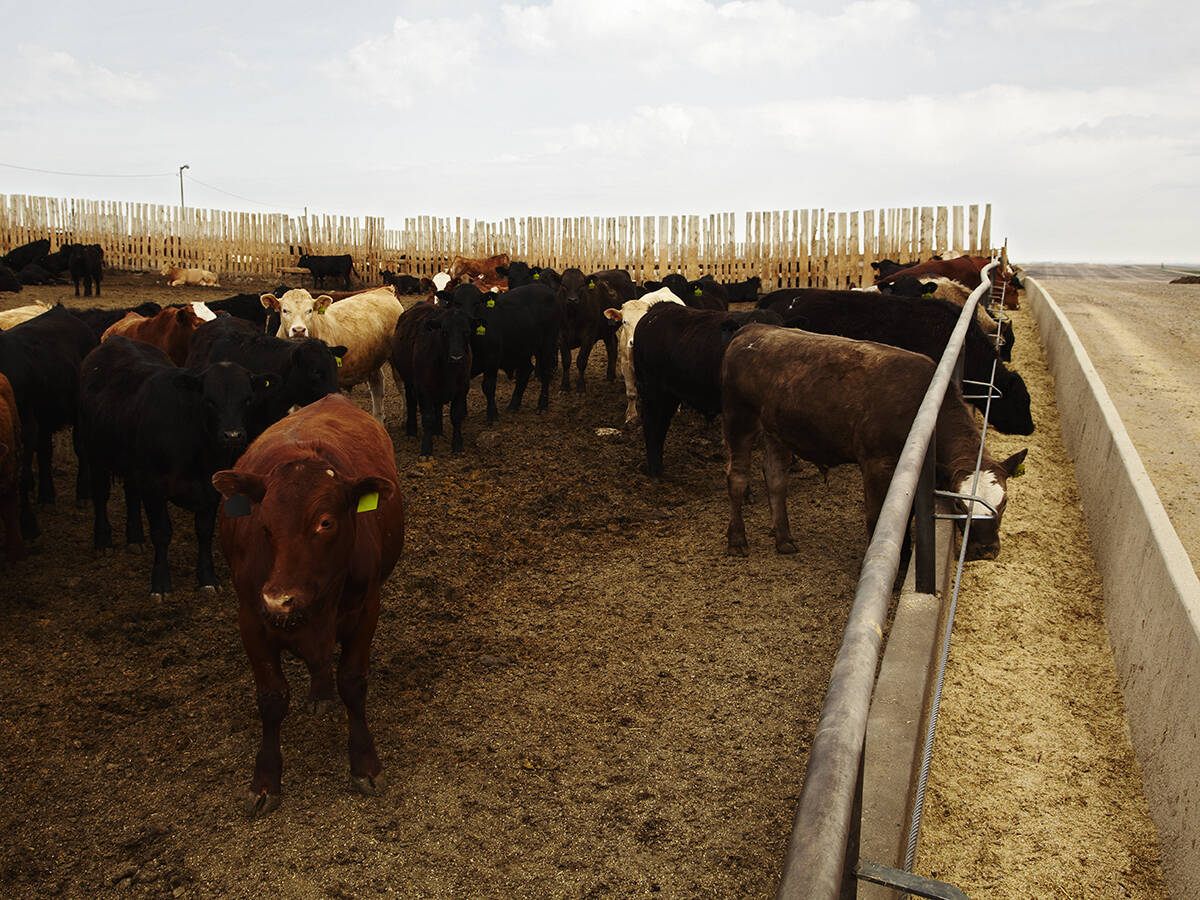
Canfax cattle market report – October 23, 2025
The Canfax cattle market report for October 23, 2025. Fed & feeder cattle prices, butcher cow trends, and cutout market insights.
Dressed sales were reported at mostly $405/cwt delivered. Packer competition was limited. U.S. packer interest was noted with light volumes marketed south. Sales to the U.S. were at a premium over local deals in the low to mid $250s/cwt with delivery in the first half of December.
The Alberta cash-to-futures basis was reported at — $11.67/cwt. When compared to the five-year average, that is $1.61/cwt stronger. It is the first time in the last six weeks that basis is stronger than the five-year average.
Canadian fed cattle exports to the U.S. for the week ending Nov. 2 were 13,750 head, 10 per cent higher than last year. The softer Canadian dollar has been supportive for fed cattle exports.
Ontario fed cattle traded fully steady with the previous week, also in the mid $240s/cwt. Dressed sales were reported at $411/cwt delivered, fully steady.
Manageable front-end supplies over the next 30-45 days should be price supportive, with fed prices expected to follow seasonal trends and strengthen from now until the end of the year.
In the U.S. last week, light trade in Nebraska was reported at US$290/cwt dressed, $4/cwt lower and $185/cwt live, $1-$3/cwt lower. Very light trade in the south was at $185/cwt, $2/cwt lower than the previous week’s trade.
The November World Agricultural Supply and Demand Estimates once again revised beef production higher, as steer carcass weights continue to run at or near all-time highs, averaging 958 pounds in the first week of November.
Cow prices stabilize
Following a month and a half of lower prices, the non-fed market started to show signs of stability. Prices were higher through commercial auction facilities and rail prices were slightly stronger.
D2s cows averaged $170.56 per cwt. last week and D3s averaged $160.23. Butcher bulls averaged $189.65 per cwt.
November is traditionally not a robust month for the non-fed market. Timing wise, cow prices should be close to setting second half of the year lows. Over the past couple of weeks, Alberta cow prices have been trading at a $3-$4/cwt discount against the U.S. market.
Mild fall temperatures have supported the supply situation. Many cow/calf operators have had extra grazing days on stubble fields and fall pastures.
Last week Ontario cow prices were reported $6/cwt weaker, hitting the lowest point since March.
Bred cattle prices are off to a strong start and should keep bred cows out of the slaughter mix.
Cutouts under pressure
In U.S. beef trade, cutouts were under pressure, with Thanksgiving buying mostly wrapped up and Christmas buying still at least a week away. Choice closed two per cent lower than the previous week to US$303.80/cwt. Select followed suit, easing one per cent lower to $276.66/cwt.
Feedlots want calves
Larger calf supplies are being met with strong feedlot demand. The calf and feeder market has experienced a counter-seasonal rally, setting new highs in November.
For the first half of November, Alberta calf prices were trading at a $25/cwt premium against the U.S. market.
November can be tough for lightweight heifer calves, but that has not been the case this year. For all provinces, year over year, the largest price increase has been on heifer calves less than 500 lb. Prices are around $100/cwt higher than a year ago.
The forward delivery market was lightly tested last week. Alberta 8-weight steers for March 25 delivery traded on either side of $350/cwt, steady to a couple dollars lower than a couple weeks ago. The 850 lb. basis for March delivery is around +$8.50/cwt, the strongest basis on record.
Last week a few cow herd dispersals were highlighted and demand was strong with top end sales up to $5,300/head. Bred heifers traded from $3,000-$5,000/head, averaging $4,000. Prices are $750/head higher than a year ago.
Bred heifer prices are sitting well above feeder prices. Bred cattle prices have historically strengthened over the next two to three weeks.


